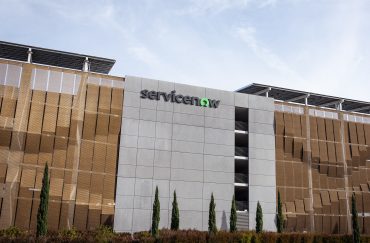

ServiceNow’s record revenue growth fuels ambitious AI-focused hiring initiative for early-career professionals across technology divisions
Three Key Facts
- ServiceNow targets new hires with over 22% of open roles designated for early-career professionals as the company prioritizes fresh talent development
- Q1 2025 revenues reach $3 billion representing 18.5% year-over-year growth, with subscription revenues at $3 billion showing strong market demand
- AI-first strategy drives hiring practices as ServiceNow integrates artificial intelligence across operations while emphasizing human skills and in-person collaboration for new employees
Introduction
New graduates entering today’s job market face unprecedented challenges as companies navigate post-pandemic workplace dynamics and rapid AI adoption. ServiceNow’s chief people and AI enablement officer Jacqui Canney identifies critical mistakes that derail new hires and offers strategic guidance for early-career success.
The technology services company positions itself at the intersection of human capital development and artificial intelligence integration. ServiceNow’s approach reflects broader industry shifts where traditional onboarding methods must adapt to hybrid work environments and AI-enhanced business processes.
Key Developments
Canney highlights three fundamental areas where new employees typically struggle. Building cross-organizational relationships emerges as the primary challenge, particularly when remote work limits natural networking opportunities. New hires often underestimate the importance of proactive relationship-building and fail to seek mentorship during critical early months.
Role clarity represents another significant obstacle. Many new employees experience uncertainty about expectations and responsibilities, leading to decreased productivity and confidence. ServiceNow addresses this through structured dialogue between managers and new hires to establish clear performance metrics and team integration goals.
The feedback loop proves equally critical for early-career development. Canney emphasizes that new employees must actively seek input rather than waiting for formal review cycles. This proactive approach enables rapid course correction and demonstrates engagement with professional growth.
Market Impact
ServiceNow’s financial performance supports its aggressive hiring strategy. The company reports Q1 2025 subscription revenues of $3.005 billion, marking 19% year-over-year growth. Total revenues reached $3.088 billion with 18.5% growth, indicating sustained market demand for the company’s services.
Current remaining performance obligations stand at $10.31 billion, representing 22% year-over-year growth. Total remaining performance obligations reach $22.1 billion with 25% growth, signaling strong customer retention and future revenue visibility that supports continued workforce expansion.
Strategic Insights
ServiceNow’s “AI-first” designation reflects a fundamental shift in how technology companies approach talent development. The company integrates artificial intelligence across operations while maintaining focus on human skills development, creating a hybrid model for workforce management.
The emphasis on in-person presence for early-career workers challenges prevailing remote work trends. Canney argues that direct interaction enables observational learning that virtual environments cannot replicate. This position suggests companies may increasingly differentiate onboarding experiences based on career stage and learning requirements.
ServiceNow organizes AI-focused hackathons to encourage innovation from new employees. This approach transforms traditional hierarchical knowledge transfer into collaborative problem-solving, positioning junior staff as contributors rather than passive recipients of training.
Expert Opinions and Data
Canney advocates for prioritizing character and curiosity over academic credentials in hiring decisions. “You learn something in that first job that has nothing to do with the job you have now,” she explains. “But it taught you about responsibility, or dealing with the public, or maybe, even service.”
Speaking at Gallup’s “The World of Work” event, Canney positioned AI as a creativity accelerator rather than a replacement threat. “We’re an AI-first company because we know AI is reshaping business, work, and life as we know it and we want to make AI work for people,” she states.
The broader market shows mixed sentiment toward AI integration. Only a minority of workers express positive feelings about AI’s career impact, according to Fortune. Legal frameworks continue evolving, with regions including Illinois and New York City implementing AI hiring regulations to prevent discrimination.
Canney emphasizes the human element through “humanity as a product” concepts. This philosophy prioritizes soft skills development alongside technical capabilities, recognizing that AI enhancement requires strong foundational human competencies.
Conclusion
ServiceNow’s approach demonstrates how established technology companies balance AI integration with human-centered development practices. The company’s strong financial performance provides resources for extensive early-career hiring while maintaining focus on relationship-building and in-person collaboration.
The emphasis on proactive feedback, role clarity, and cross-functional networking addresses persistent challenges in modern workplace integration. ServiceNow’s model suggests that successful AI-first companies must invest equally in human capital development and technological advancement to maintain competitive advantage in evolving talent markets.





